
On Demand Webinars
Copilot Partners: Unlock your opportunities
Our latest On-Demand webinar provides a practical, execution focused walk through the full Copilot partner journey, from early adoption to advanced scenarios.
Reducing SPLA Compliance Risk
It’s no secret that the economic pressure is on for the major software vendors. The market is more competitive than ever, inflation and the cost of operations continue to climb, and the continuous innovation and product development investment is astronomical.
In these conditions, protecting revenue streams is critical and we should anticipate vendors will vigorously do so. Non-compliance with licensing agreements is a known source of revenue leaks, and Microsoft SPLA is no exception.
Microsoft’s SPLA program enables service providers to offer Microsoft software, including Windows Server, SQL Server, and other Microsoft products, to their customers as a service. This means MSPs and indirect sales partners can deliver Microsoft solutions without having to purchase perpetual licenses for each customer.
SPLA is a very flexible and operationally low maintenance licensing model. The downside is that it’s just as easy to be incompliant. The rules of the game can change quickly as Microsoft makes updates and changes to its licensing programs. Various editions, products and conditions can lead to confusion and misunderstandings about compliance obligations. Transaction and account volumes, changing configurations in customer environments and diverse service portfolios can make it difficult to accurately track and manage SPLA licenses and usage for each customer.
Compliance burden is a pain point for many partners. Few can dedicate resources to constantly monitoring compliance posture. The good news is there are solutions and services that can reduce this pain. Achieving transparency around SPLA does involve some investment, but it’s well worth it to reduce the risk of being exposed.
Despite the headaches, compliance with SPLA is good for business. It ensures that your business has the legal right to use and offer Microsoft services, and that your customers are assured they have access to legitimate, supported software. Bootleg software use is a known issue in some regions, but this is being stamped out as software supply chain security and risk management becomes more of a focus for customers. Businesses want to reduce risk, and they do not seek to become caught up in legal disputes with their service providers or huge vendors like Microsoft. They rely on their partners to act in their best interests. Demonstrating sound licensing management and compliance risk reduction disciplines provides partners with a competitive advantage in the long run.
In general, SPLA has operated on something of an ‘honesty system’ for a long time. Partners are encouraged to self-report and conduct their own SPLA assessments. There are mechanisms in place for partners to proactively address any identified non-compliance, and Microsoft is generally supportive of partners that maintain open lines of communication on this front.
Beyond this, there are many levers for Microsoft to pull when it comes to enforcing SPLA obligations in the partner ecosystem. These include analysis of software usage patterns, license key and activation audits. Such measures can pick up inconsistencies that suggest non-compliance. If it is deemed necessary, Microsoft has the authority to conduct audits of SPLA partners’ records, systems, and licenses. These audits can be triggered by various factors, including suspicious activity, irregularities in reported usage, or random selection.
Microsoft has recently intensified its efforts to enforce SPLA compliance. This means a higher risk of audits for MSPs and indirect sales partners who may not have been vigilant about compliance in the past. The warning bell is ringing, and it’s crucial to heed it.
Facing a Microsoft audit is an experience that no MSP or indirect sales partner wants to go through. It can take many hours to prepare for an audit, and this is valuable time not spent securing new business and servicing customers. If a partner is found to be non-compliant, the consequences can include hefty fines and the risk of legal action.
Of course, auditors do not always get it right and partners can (and should) dispute an unfavourable audit finding. However, this typically relies on partners having a very good understanding of their contract agreements and being able to provide comprehensive documentation, data, and evidence to support their dispute. This can include, but is not limited to license deployment records, Software Asset Management reports, usage data, configuration records, records of license transfers and reassignments, inventory reports and audit logs. It can be a disruptive, lengthy, and expensive exercise with no guarantee of success.
Crayon provides services that can support partners during the audit process and to minimize the exposure long before the chance of an audit. The prudent course of action is to always to reduce the risk before being audited.
In the realm of SPLA compliance, the message is clear: being transparent is far better than being exposed. Rather than taking risks with non-compliance, it’s wise to invest in sound Software Asset Management (SAM) practices. Here’s how SAM can help:
SAM helps you maintain an accurate inventory of your licenses, ensuring that you’re always up to date.
SAM tools can monitor your software usage, alerting you to any potential compliance issues before they become a problem.
SAM can automate the compliance process, reducing the risk of human error.
SAM keeps you informed about changes in licensing terms, helping you adapt quickly.
Sound SAM practices can also solve financial challenges for service providers by providing the data needed to ensure correct billing. SAM aids partners to connect finance, operations and technology data to support sound decision making.
As well as services to support partners with SPLA compliance, Crayon also offers solutions aimed at automation of licencing management, and reducing the administrative burdens involved. These include Octopus Cloud and NinjaOne. Partners that are ready to rethink their operations to reduce costs and risk should reach out to our Technology Advisory Group for Cloud Infrastructure and Platforms. Simply ask your account manager to set up a meeting, or email tag.cloud@crayon.com
Remaining compliant with Microsoft SPLA licensing agreements should be viewed as a non-negotiable aspect of doing business. Microsoft’s renewed enforcement efforts serve as a stark reminder of the importance of compliance. The challenges associated with maintaining compliance are real, but the consequences of non-compliance are far more daunting.
In the end, transparency and a proactive approach to Software Asset Management are your best defences against potential audits and their painful consequences. MSPs and indirect sales partners must take the necessary steps to ensure that they are always on the right side of SPLA compliance, protecting their businesses and reputation in an increasingly regulated IT landscape. Remember, when it comes to SPLA, it’s always better to be transparent than exposed.
Crayon’s SPLA Health Check Assessment is powered by KPMG certified solution provider, Octopus Cloud. Identify gaps in your SPLA licensing management processes and get on the front foot, fast.
Book an Assessment
On Demand Webinars
Our latest On-Demand webinar provides a practical, execution focused walk through the full Copilot partner journey, from early adoption to advanced scenarios.
Blogs
Catch our comprehensive summary of the highlights from Microsoft Ignite 2025, combined with the resources and links you need to dig into the detail!

Training
In our latest webinar, our in-house Modern Work experts Jye Wong and Ksenia Turner will run you through a practical refresher on Solution Partner Designations; what they are, why they matter and how to get started.

Sales and Marketing
Business leaders don't live in the tools. They live in the outcomes. The metrics they care about most are not always limited to compliance and risk. So how do you connect data protection to the big-ticket objectives, when they're less obvious? Our in-house pre-sales expert, Michael Brooke explains.
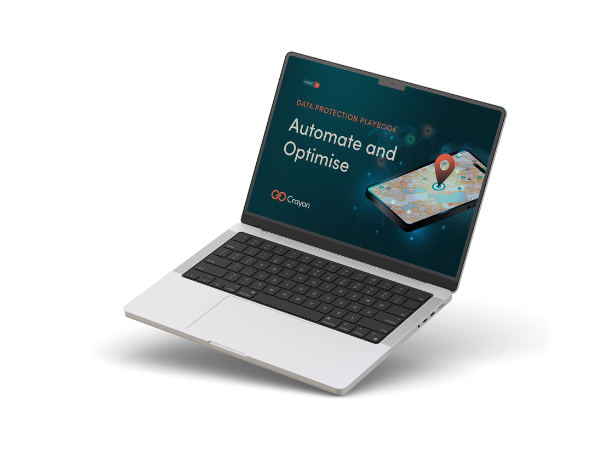
Guides and eBooks
As SMBs mature in the Data Protection lifecycle, they need help to optimise spend, reduce the compliance burden and ensure results align to business objectives. The third installment of our Data Protection Playbook series provides practical guidance for partners on how to address emerging pressure and connect ongoing investment to measurable business value.

Training
Copilot Agents: what are they and how do they differ from AI assistants and chatbots? Our in-house Copilot expert Ksenia Turner explains the use cases and service opportunities for partners.

Blogs
Fragmented data protection systems and processes create compliance proof-gaps for SMB customers. Scott Hagenus, Director, Cybersecurity here at Crayon explains.
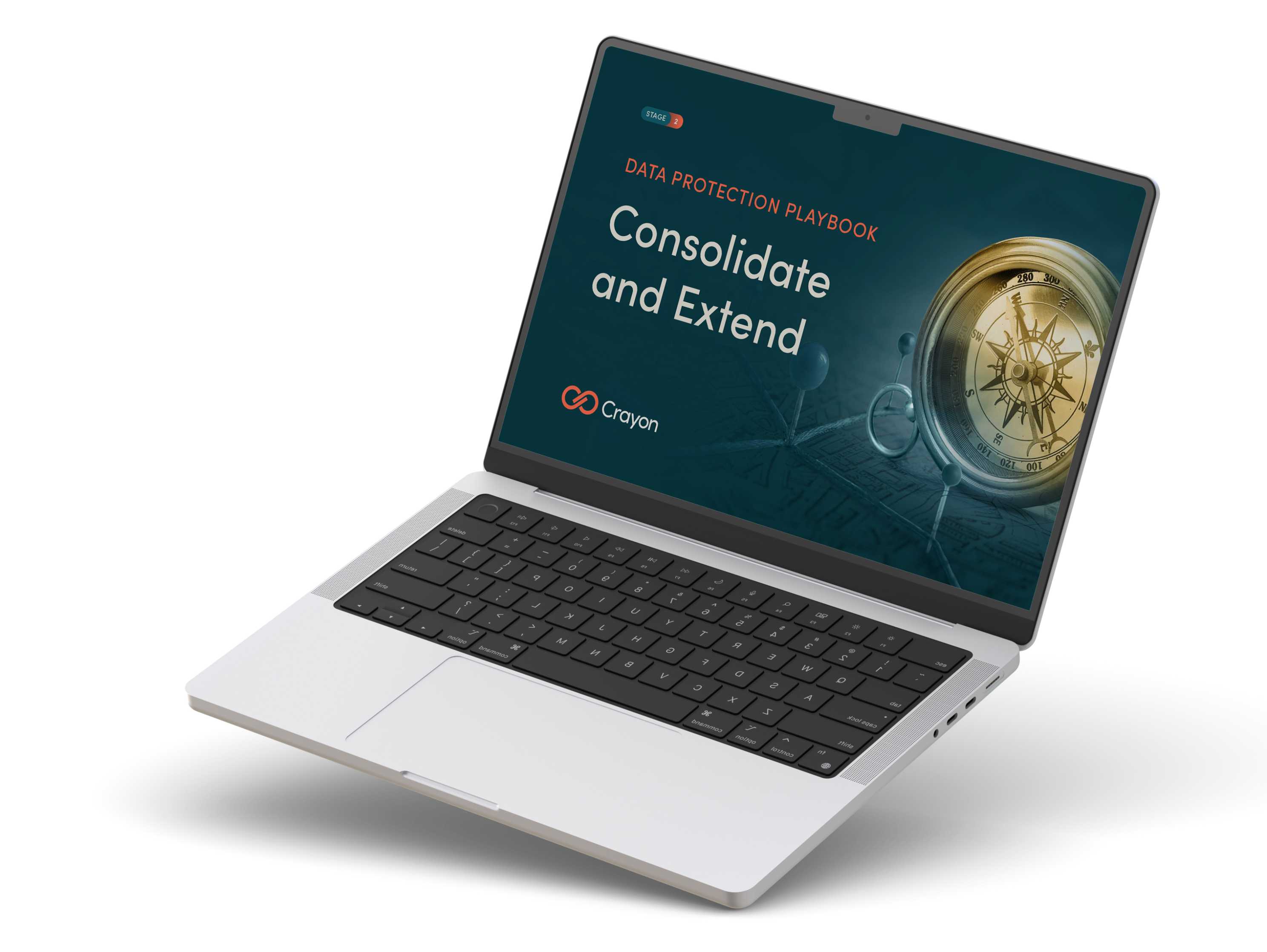
Guides and eBooks
How can partners help their SMB customers to move from silos of security and continuity to a more cohesive, measurable and insurable data protection framework? The second edition in our Data Protection Playbook series maps out their journey, and yours.

Sales and Marketing
Ever wonder why a pitch has some IT Managers leaning forward, while others glaze over? Michael Brooke, Cybersecurity Pre-Sales Lead offers some insight on how to tune your approach to chime with different technical mindsets.

Vendor Announcements
Copilot for Business has landed at Microsoft Ignite 2025, levelling the GenAI playing field for SMB customers. Learn all about it from our man on the ground, Andreas Bergman.

Press Release

Press Release

Blogs
As cybersecurity and continuity converge in platforms and in practice, partners need new playbooks to address modern Data Protection standards. Our in-house cybersecurity pre-sales lead, Michael Brooke explains why.
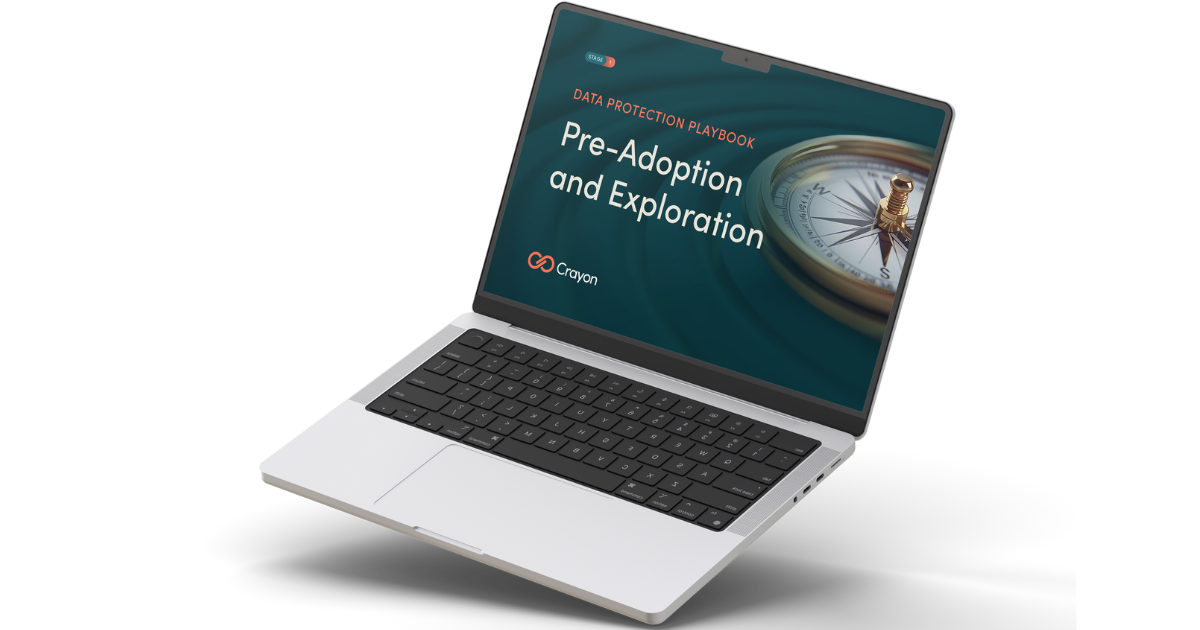
Guides and eBooks
What triggers an SMB customer to begin exploring their need for better Data Protection? The first of our four Data Protection Playbooks for partners breaks down how to position and win in the Pre-Adoption and Exploration stage.

Insights
Data Protection priorities are shifting for SMBs. Ramp up your ability to respond with curated insights, articles and resources to help you guide every customer conversation with confidence.

Partner Spotlight
In this Partner Spotlight, Acceltech Managing Director Ivy Tarrobago shares how Crayon’s responsive support enhances client outcomes and business growth.

Whitepapers
Data Protection is a must for all SMBs but how can partners align solution investment with critical business objectives? Our latest paper shows you how.

Press Release
Crayon has been recognised with a huge double win at the CRN Channel Asia awards ceremony.

Insights
All the latest insights, articles and resources on M365 Copilot, curated into one place.

Insights
SMB customers are storing greater volumes of sensitive data in more places than ever. Secure backup and recovery practices are essential to how they protect it.

Partner Spotlight
Bigfish Technology saved AU$20,000 on its annual Microsoft licensing after one call with Crayon and has since built a strong partnership that enabled Bigfish to get access to Crayon’s expertise and vendor ecosystem.

Insights
Insider risk is a subtle and continuous challenge for SMB customers. Turn it into a manageable and quantifiable aspect of their Data Protection strategy.

Blogs
From rethinking backup to governance frameworks and behavioural analytics, what's involved in building a complete Data Protection strategy for SMB customers?
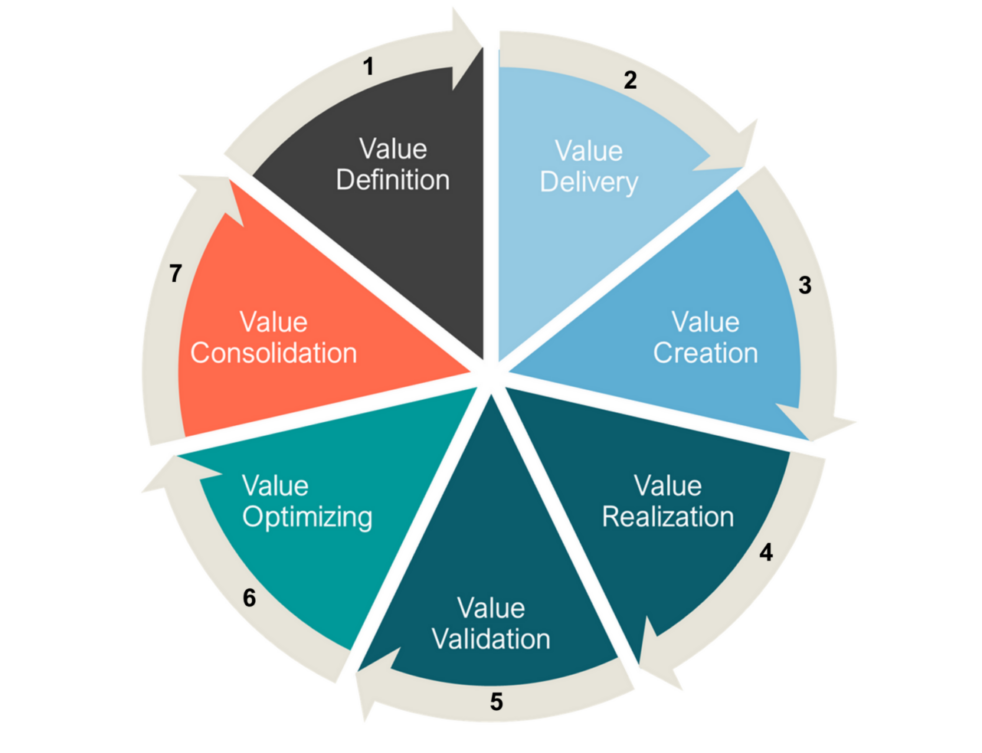
Insights
We explore the evolution of Microsoft's channel strategy over the past ten years, and what can be learned by viewing it through a Value Cycle lens.

Guides and eBooks
The Microsoft Fabric Partner Guide curates our recent articles, videos and resources to accelerate Crayon partner learning.
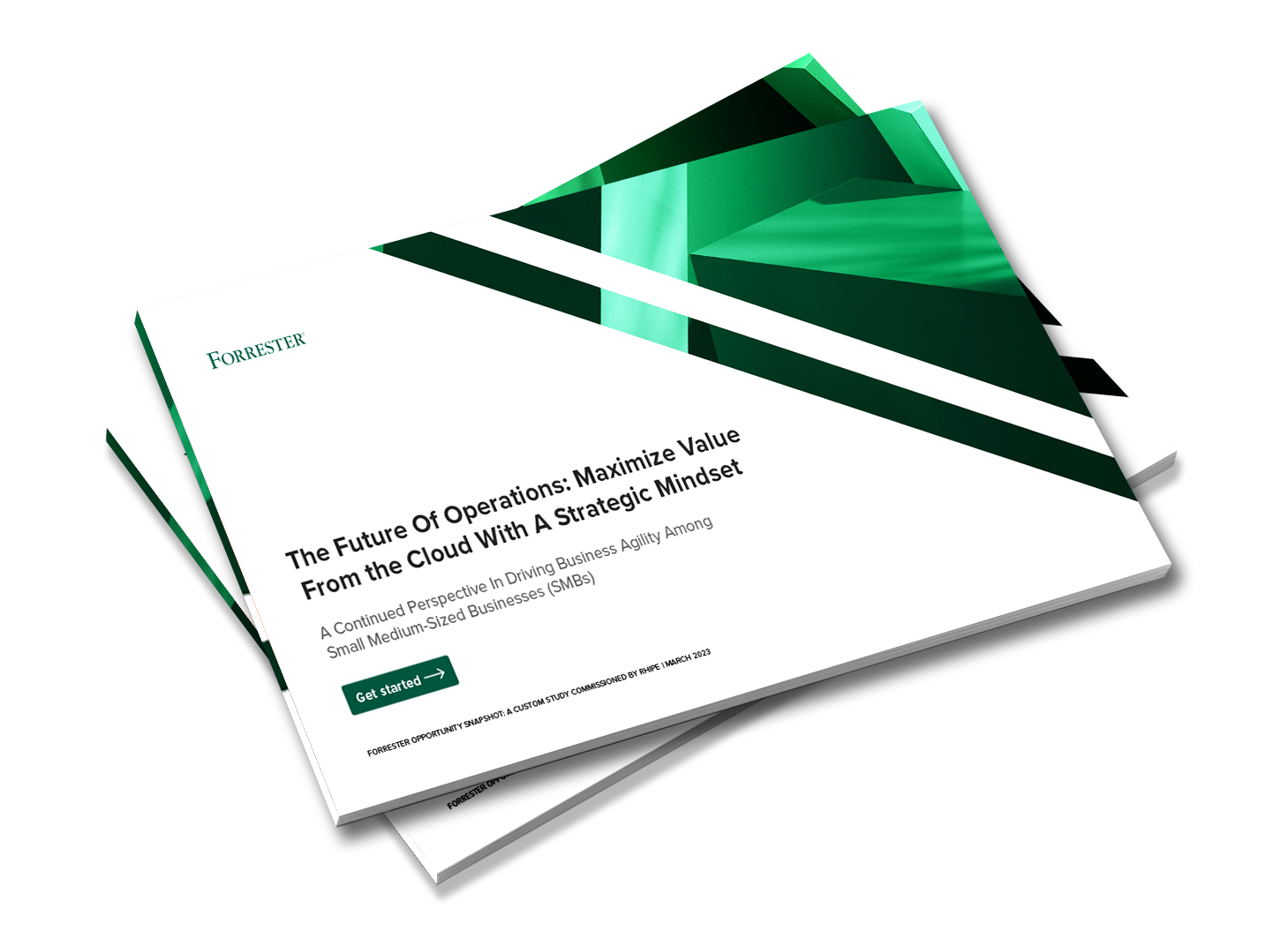
Research Reports
The Future of Operations 2023 is an APAC wide study of small to medium sized businesses. It covers outcomes from cloud adoption, intent to invest and what businesses want from their technology service providers.

Podcast
Is high-performance more than just a buzzword? Find out as Dr. Joe explores the importance and impact of internal culture with his guests.
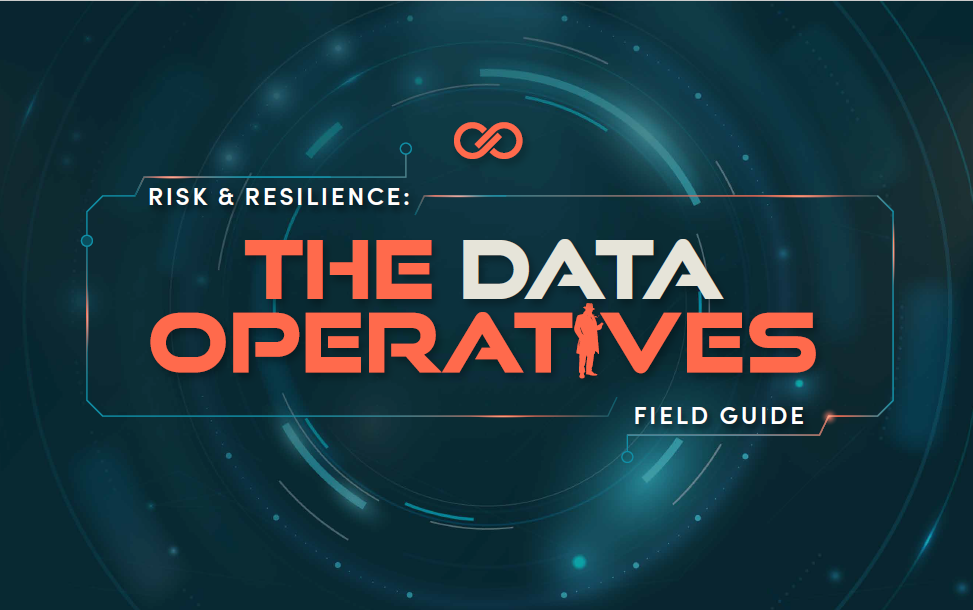
Guides and eBooks
Mission essentials for winning data protection business in education, healthcare, retail and manufacturing.

Blogs
An explosion in ransomware attacks has fueled a nationwide review of the issue, as concern rises that secret payoffs add increased fuel to the cybercrime fire.

Insights
A recent study of small to medium sized businesses (SMBs) across the Asia Pacific region signals a sweet spot for partners that can connect Cloud ERP, Business Process Automation and AI.


Blogs
Crayon cloud security assessments help partners lock down M365 and Azure environments and build profitable cybersecurity practices. Learn how.

Connect Data Protection to strategic objectives via this Whitepaper
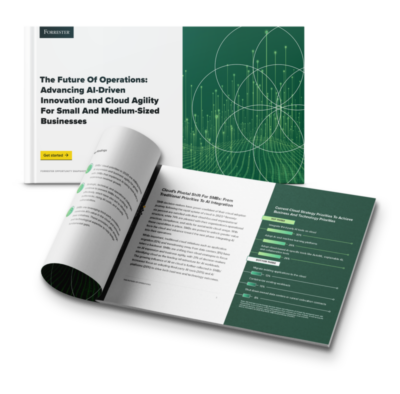
What are the most critical business objectives and solution adoption priorities for SMBs in our region? Download the latest Forrester study to find out!

Our APAC channel business is now part of a global organisation. That means there is a whole new world of value on offer for our partners. We can help you to tap into all of it.